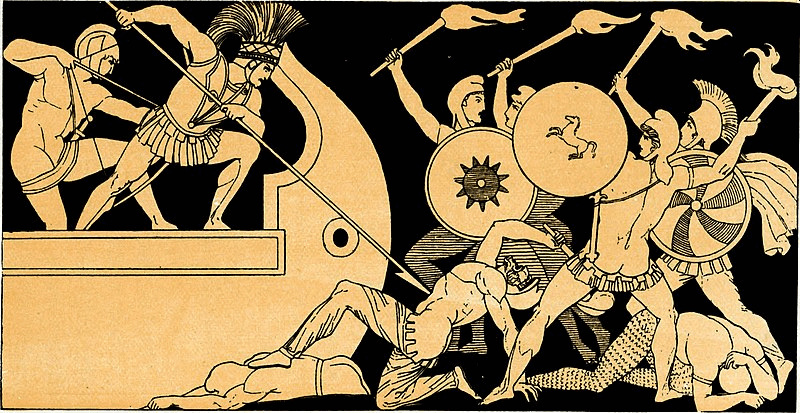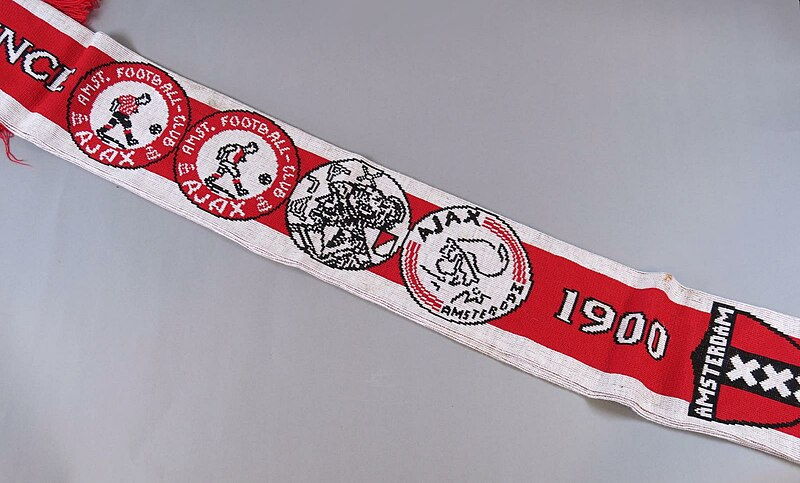Ajax is one of the most famous football clubs in the Netherlands, playing in the Eredivisie and winning it more often than not. The club’s name is one that often confuses people, given its Greek connections, but the decision to name the club Ajax actually makes sense when you know about the history.
In The Iliad, Ajax was described as being the greatest of all of the Greeks, fighting with his cousin Achilles. He fought against Troy’s champion, Hector, with neither man winning, but Ajax eventually committed suicide. This meant that he died without having lost a fight, unlike Achilles.
Obviously there is nothing to be celebrated about suicide and anyone struggling should seek help from the likes of the Samaritans, but the story of your time coming to an end without being on the losing end of a battle is obviously one that appeals to the likes of football clubs.
Ajax didn’t just give his name to the football club, with an image that is supposed to represent the Greek hero also appearing on the club’s crest. It has changed a couple of times over the years, but the general idea remains the same: the image is one of Ajax, the legend after whom the club is named.
Who Was Ajax?

First things first, who was Ajax? The mythological Greek hero was the son of Telamon and Periboea as well as being the half brother of Teucer. Only Achilles was more important than him in Homer’s The Iliad, and the Epic Cycle, a series of epic poems.
Ajax was described as being powerful and with ‘hair black and curly’ in the account of Dares the Phrygian. Homer, meanwhile, described him as having a colossal frame and being the strongest of the Achaeans. He was trained to fight by a centaur, being fearless, strong and powerful as well as intelligent in battle.
In all of the battles described in The Iliad, Ajax is never wounded, being the only character on either side who gets no major assistance from the gods. Interestingly from a footballing point of view, especially when you think of Ajax as a football team, he is often described in a defensive manner rather than an offensive one.
His strength and his courage are both aspects that make sense for a football team to want to associate with themselves, however. Ajax also carried the body of Achilles back to the ships with his own spear and shield, suggesting coping with adversity and the onslaught of others.
The Man on the Crest

When Ajax was founded as a football club, with those responsible for doing so, Floris Stempel, Carel Reeser and Han Dade, having already tried to create a side called Football Club Ajax, they made the decision to give it its name based on their love of the Greek legend. The side needed a club crest, with the emblem being simply a picture of one of the Ajax players wearing the club kit.
When the team was promoted to the Dutch top-flight in 1911, the kit was changed because another side already played in their colours, with the crease being adjusted accordingly.
In 1928, however, a decision was taken to bring a link between the football club and the Greek hero after which it was named. As a result, the crest bore the head of the mythical figure of Ajax, with a long beard and a hat. That remained the logo until 1990, at which point it was swapped for a more abstract version of that same hero of Greek mythology.
This time, though, the outline was made up entirely of lines, with 11 of them being used to create the drawing. This was done as a nod to the 11 players that make up a football team, obviously not including substitutes.
Dutch Football & Mythology

Interestingly, Ajax isn’t the only football club in the Netherlands named after a character from the world of Greek mythology. Founded in the June of 1929, Achilles ’29 is based in the area of Groesbeek and were named in honour of Achilles, the cousin of Ajax, with the year of its formation tagged on the end.
The club hasn’t ever really troubled the top end of Dutch football, proving that a name isn’t always the most important thing, but they have knocked some big clubs out of the cup over the years. One of them was Heracles Almelo, named after the Roman hero Heracles.
Created in Almelo in 1903, the main part of the club’s name comes from the son of Zeus. The club became Dutch champions for the second time in 1941, but the Eredivisie in its current form was still more than a decade away.
Another team in the Netherlands with links to mythology is Sparta Rotterdam, who were named after a Greek city-state of legend. It is the oldest club in Dutch football, having been founded in April 1888 and winning the top-flight half a dozen times in the hundred or so years that followed. They also won the Dutch Cup for the third time in 1966.